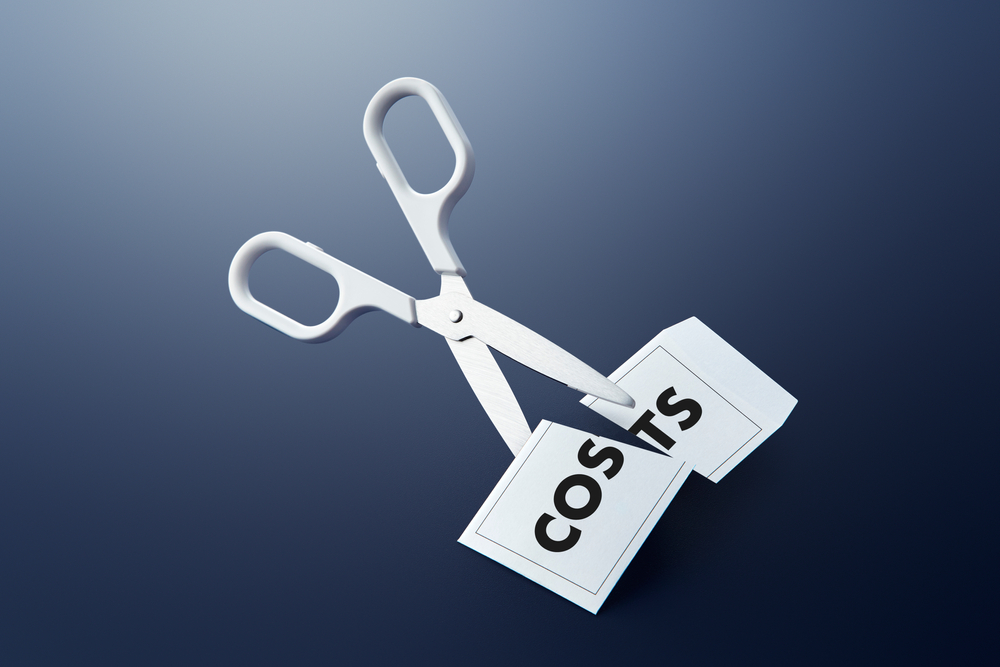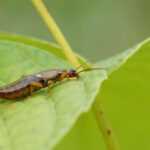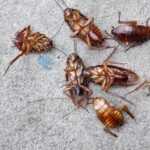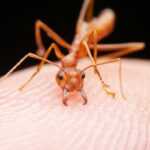Exterminator Prices: Your Complete Guide to Pest Control Costs
Wondering about exterminator prices? This guide explains what you can expect to pay for pest control services and what affects these costs. Get ready to learn about average costs for different pests, options for savings, and factors influencing the final price.
- Exterminator costs vary based on pest type, severity of infestation, and property size, with termites being the most expensive to eliminate.
- One-time treatments might be cheaper upfront, but regular pest control services can save you money by preventing future infestations.
- DIY methods can be economical for minor issues, but professional exterminators are often essential for serious pest problems to ensure effective solutions.
Understanding Exterminator Prices
Exterminator prices may seem mysterious, but they’re influenced by several factors. The type of pest heavily influences costs, as different pests require varied extermination methods. For example, termite control is far more complex and expensive than managing a few ants. The severity of the infestation also matters. Minor pest issues are cheaper to address than severe ones, which often need more extensive treatments, raising costs.
Property size is another important factor. Larger properties require more time, effort, and materials to treat, increasing costs. Urban areas often have higher extermination costs than rural locations due to elevated labor and operational expenses. City dwellers might pay more for pest control services than those in rural areas.
The location and size of the severe infestation within your property also matter. Pests nesting in hard-to-reach areas may require more resources to eliminate. Some treatments require multiple visits from the exterminator, which can increase costs but often result in more thorough and effective pest control.
These factors explain why extermination prices vary widely. Knowing what to expect helps you plan better and avoid unpleasant surprises when you receive the bill.
Typical Costs for Common Pests
When it comes to pest control, not all pests are created equal. The cost of dealing with pests varies significantly. For instance, ant control is relatively inexpensive, while termite extermination can be very costly. Property size and infestation severity are crucial in determining the overall cost.
We’ll break down the typical costs associated with controlling some of the most common pests: ants, termites, and rodents. Specific treatments required for each pest type influence the overall pest control cost.
Ant Control Costs
Ants are one of the more manageable pests, and as such, the exterminator cost associated with their extermination tends to be on the lower end of the spectrum. Typically, extermination costs range between $250 and $500. This range is influenced by factors such as the size of the infestation, its location, and how widespread the ants are.
Ants are generally less expensive to eradicate, but a small ant problem can quickly escalate if not promptly addressed, leading to higher costs. Tackling the issue as soon as you notice a few ants can prevent higher costs later.
Termite Extermination Costs
Termites are notoriously difficult to eliminate, which is reflected in high extermination costs. Specialized treatments for termites range from $2,000 to $8,000 due to their complexity and difficulty.
Termites can cause severe structural damage if left unchecked, justifying the higher extermination costs. Investing in professional termite control is a wise decision to protect your property.
Rodent Removal Costs
Rodent removal costs vary widely based on factors such as the type of rodent, severity of infestation, and property size. Rodent removal services typically range from $200 to $600. The method of removal, such as trapping or using baits or poisons, also influences the cost.
Initial inspections might add around $100 to the overall cost, but many pest control companies waive this fee if you proceed with extermination. Addressing rodent issues promptly is crucial, as they can multiply quickly and cause more significant problems.
One-Time vs. Recurring Treatments
Deciding between one-time treatments and recurring pest control services can be challenging. One-time treatments usually have a lower initial pest control cost, typically ranging from $144 to $298 in Seattle. These treatments are effective for immediate pest issues but may not prevent future occurrences.
Recurring treatments offer ongoing protection and can range from $40 to $300 per treatment, depending on frequency and type of service. For instance, quarterly pest control services in Seattle typically cost between $93 and $285. While the ongoing cost is higher, these services help maintain a pest-free environment and catch infestations early.
The choice between one-time treatment and recurring treatments depends on the specific pest type and frequency of infestations. For some homeowners, recurring treatments can be more cost-effective in the long run as they help prevent severe infestations and associated high costs.
Additional Costs to Consider
When budgeting for pest control, consider potential additional costs. The initial visit usually costs between $300 and $550, covering assessment and treatment. Pest inspections can range from $125 to $450, depending on the type of inspection and home size.
Follow-up inspections can add $100 to $200 to the overall cost. These inspections are vital for uncovering hidden problems, enabling early, more cost-effective interventions. Regular pest maintenance reduces the risk of infestations and related damage, helping homeowners save money in the long run.
Pest control services might also lead to repair expenses for structural damages caused by a pest infestation. Regularly checking for signs of pest activity and maintaining your property can catch infestations early, making treatments less extensive and costly.
DIY Pest Control vs. Professional Services
DIY pest control methods are appealing due to their lower cost compared to professional services. However, DIY products are often less effective than professional-grade solutions. DIY methods might suffice for minor infestations, but serious issues like termites or bats typically require professional intervention.
A downside of DIY pest control solutions is the risk of trapping critters in walls, leading to odor issues. For severe or complex pest problems, hiring a professional exterminator is usually the best route for thorough and effective extermination.
Popular DIY Pest Control Products
Traps, repellents, and bait stations are common DIY pest control methods that can help manage pest issues effectively. These products are widely available and can be effective for minor infestations. Retail prices vary based on type and brand, but generally remain affordable for most homeowners.
While DIY products can manage small pest problems, they often lack the potency and long-term effectiveness of professional treatments. For example, bug spray and bait stations might offer temporary relief but may not eliminate the root cause of the infestation.
Tips for Reducing Extermination Costs
Reducing extermination costs doesn’t have to be daunting. Several effective methods can help keep pest control expenses in check. One crucial step is to take preventive measures. Regular maintenance, comparing quotes, and negotiating prices with pest control companies can significantly reduce costs.
Regular Maintenance
Regular pest control services offer continuous protection and help in early detection of potential infestations. Proactive pest management prevents infestations from escalating, leading to significant damage and higher costs.
Homeowners can save on pest control by implementing preventative measures and maintaining their property. Regular inspections and maintenance visits help catch issues early, making treatments less extensive and costly.
Comparing Quotes
Getting estimates from various pest control providers can help identify the most economical options. Prices can vary widely, and multiple quotes help homeowners understand the pricing landscape and make informed decisions.
Comparing quotes helps discern the average market price and avoid overpaying for pest control services. This helps find cost-effective solutions and ensures you get the best value for your money.
Negotiating Prices
Many pest control companies are open to price negotiations, which can help reduce costs. Negotiating prices with pest control providers can save money on extermination services.
When dealing with pest control companies, discuss pricing and highlight competing quotes to encourage better rates. This approach can lead to more cost-effective pest control solutions.
Choosing the Right Exterminator
Choosing the right exterminator services is crucial for effective pest control. Homeowners should research average service costs in their area to negotiate better rates with pest control companies. Verify that the pest control company has a certified pesticide applicator who meets state licensing requirements, and consider hiring a local exterminator. For comprehensive solutions, consider professional extermination services.
Inquire about the company’s experience and ask for references to gauge previous customer satisfaction. Requesting a breakdown of services can strengthen your negotiating position for pest control pricing.
Make sure the pest control company provides clear information about the pesticides used and their application methods. Follow any pre-treatment instructions given by the pest control service to ensure safety and effectiveness.
Navigating the world of pest control costs can be challenging, but understanding the various factors that influence these prices can make the process much easier. From the type of pest and severity of the infestation to property size and location, numerous elements determine how much you’ll pay for extermination services.
By taking preventative measures, comparing quotes, and negotiating prices, you can effectively reduce pest control costs. Whether you choose DIY methods or hire a professional exterminator, being informed and proactive is the key to keeping your home pest-free without breaking the bank.
Frequently Asked Questions
What factors influence exterminator prices?
Exterminator prices depend on the type of pest, how severe the infestation is, the size of your property, and where you’re located. So, if you’re dealing with a tough pest problem, expect those costs to vary.
How much does ant control typically cost?
Ant control usually ranges from $250 to $500, influenced by the size and location of the infestation. Keeping these factors in mind can help you budget appropriately.
Are recurring pest control services more cost-effective than one-time treatments?
Recurring pest control services are generally more cost-effective over time because they offer continuous protection and help prevent infestations before they become major problems. So, investing in regular treatments can save you money in the long run!
Can I negotiate prices with pest control companies?
Absolutely, you can negotiate prices with many pest control companies to help save some cash. It’s worth asking for a better deal!
What are the additional costs to consider in pest control services?
Don’t forget to factor in initial visit fees, follow-up inspections, and any repair costs for damage from pests. These extras can really add up!





